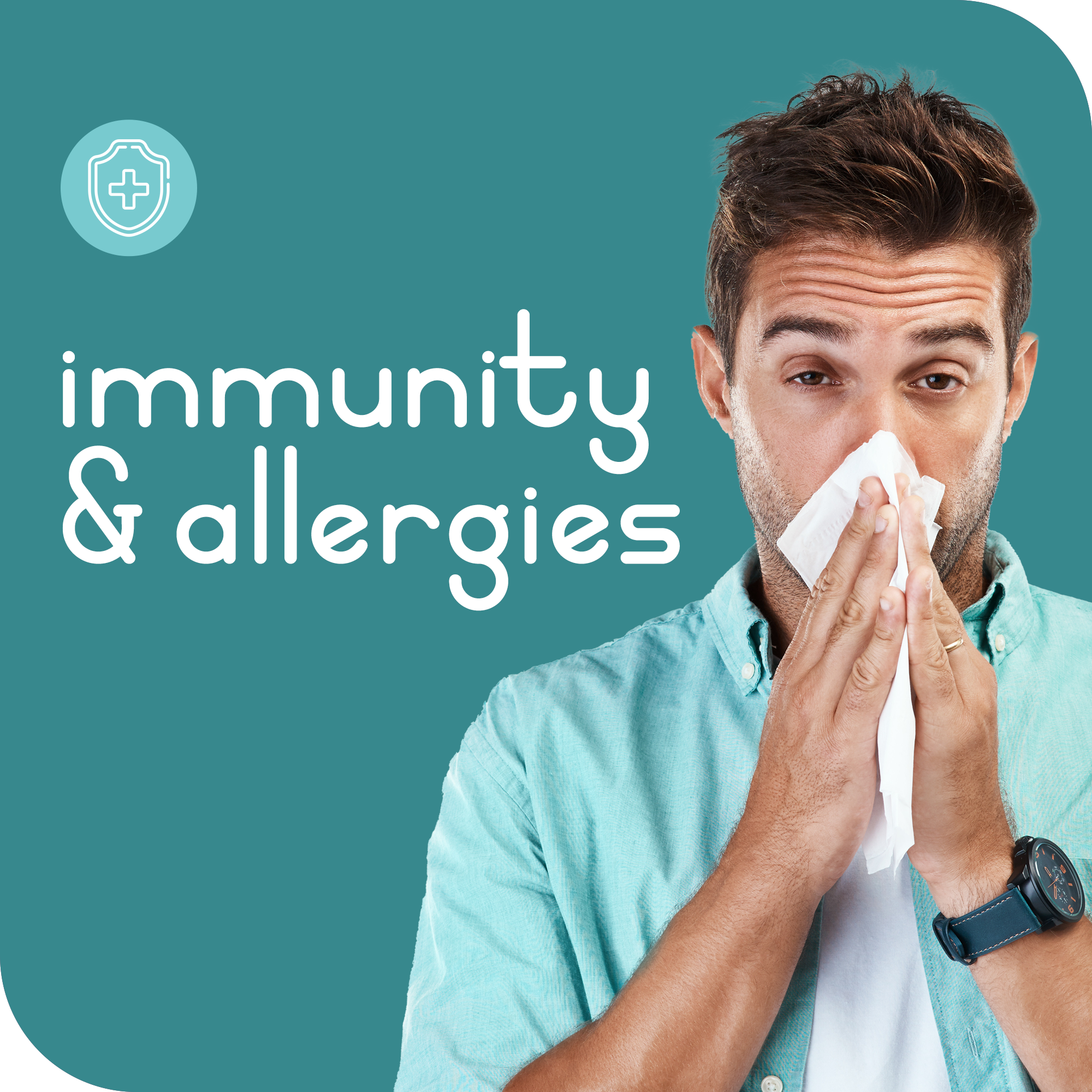When springtime brings blossoming flowers and warmer days, it also unleashes a wave of pollen — and with it, the misery of seasonal allergies. Sneezing, itchy eyes, congestion, and fatigue become all too familiar for millions of people. Enter quercetin, a natural fruit extract offering allergy relief!
What is Quercetin?
Quercetin is a natural flavonoid found in many fruits, vegetables, and herbs, especially onions, apples, berries, grapes, and green tea. It’s part of the body’s defence toolkit when we consume plant foods, helping to neutralise free radicals and reduce oxidative stress. But beyond its antioxidant power, quercetin plays a key role in modulating immune responses — making it a promising ally for people affected by seasonal allergies.
The Link Between Quercetin and Allergies
Seasonal allergies are triggered when the immune system overreacts to harmless substances like pollen. This immune response causes the release of histamine, leading to inflammation, mucus production, and the familiar symptoms of hay fever.
Here’s where quercetin steps in: research suggests that quercetin can stabilise mast cells — the immune cells responsible for releasing histamine. By reducing histamine release, quercetin may help reduce the intensity of allergic reactions, especially those tied to airborne allergens.
Key Benefits of Quercetin for Allergy Sufferers
-
Natural antihistamine action: Quercetin inhibits histamine release without the drowsiness associated with many over-the-counter antihistamines.
-
Anti-inflammatory support: It may reduce airway inflammation and ease breathing difficulties, particularly useful in pollen-heavy seasons.
-
Immune system regulation: Quercetin appears to balance immune responses, reducing the overactivation that leads to allergic flare-ups.
Evidence from Research
While more large-scale human trials are needed, several in vitro and animal studies support quercetin’s potential:
-
A study published in the International Journal of Molecular Sciences found that quercetin significantly inhibited histamine and pro-inflammatory cytokine production in allergic cells.
-
Other research has shown quercetin’s capacity to ease bronchial hyperresponsiveness, making it particularly helpful for those with allergic asthma or rhinitis.
In combination with vitamin C, quercetin may have enhanced bioavailability and potency — a pairing often used in supplements targeting immune and allergy support.
How to Take Quercetin
Quercetin is available in foods, but the amounts may be too small to make a noticeable difference during allergy season. That’s why many turn to supplements for more concentrated support. Typical dosages range from 500 mg to 1,000 mg daily, often split into two doses.
Is It Safe?
Quercetin is generally well tolerated when taken at recommended doses.
-
If you take blood thinners or immunosuppressants speak to your GP provider before starting quercetin, or any new supplement.
-
Quercetin is not recommended for people under treatment for hypothyroidism.
Conclusion
If seasonal allergies leave you struggling each spring or autumn, quercetin might be worth exploring as part of a broader immune support strategy. With its natural antihistamine effects and immune-balancing properties, it offers a gentle, plant-based way to manage allergy symptoms — and may even help reduce your reliance on pharmaceuticals.
As always, consistency is key, and combining quercetin with other healthy lifestyle choices — like a nutrient-rich diet, good hydration, and minimising allergen exposure — can offer the best results.
Research Sources
1 - Quercetin with the potential effect on allergic diseases, Morteza Jafarinia, Mahnaz Sadat Hosseini, Neda Kasiri, Niloofar Fazel, Farshid Fathi, Mazdak Ganjalikhani Hakemi, Nahid Eskandari, Allergy, Asthma & Clinical Immunology, 2020
Summary: This review discusses quercetin's anti-allergic functions, including its ability to inhibit histamine production and pro-inflammatory mediators, regulate Th1/Th2 balance, and decrease antigen-specific IgE antibody release by B cells.
2 - Quercetin inhibits expression of inflammatory cytokines through attenuation of NF-κB and p38 MAPK in HMC-1 human mast cell line, Y.-D. Min, C.-H. Choi, H. Bark, H.-Y. Son, H.-H. Park, S. Lee, J.-W. Park, E.-K. Park, H.-I. Shin, S.-H. Kim, Inflammation Research, 2007
Summary: This study demonstrates that quercetin decreases the gene expression and production of pro-inflammatory cytokines in human mast cells by attenuating NF-κB and p38 MAPK pathways.
3 - Effects of repeated oral intake of a quercetin-containing supplement on symptoms of Japanese cedar pollinosis: a randomized, double-blind, placebo-controlled trial, European Review for Medical and Pharmacological Sciences, 2020
Summary: This clinical trial found that oral intake of a quercetin-containing supplement significantly improved symptoms of Japanese cedar pollinosis, including nasal and ocular symptoms, and enhanced quality of life.
More on Quercetin
A Natural Antihistamine: Quercetin for Hay Fever is Your New Best Friend
Quercetin: Top 10 Things it’s Good For & How To Choose The Best Supplements









